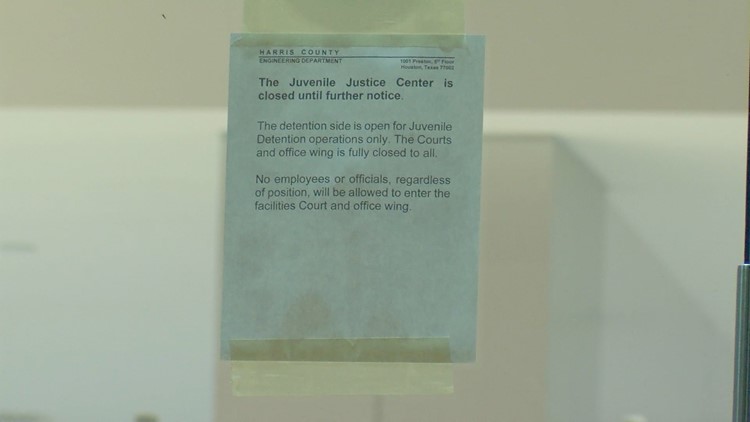HOUSTON — The Harris County District Attorney’s Office confirms that a person who has been at the Juvenile Justice Center is under quarantine as “a suspected COVID-19 case.”
The Juvenile Justice Center has been shut down and no one is allowed into the office until further notice.
Officials released the following statement to their employees:
“If you have been working in the JCC this week do not come to 500 Jefferson or intake at 1301 Franklin tomorrow (Friday). You should just stay home tomorrow and await further instructions. We cannot take any chances on secondary exposure until we know the extent of the issues the JJC.”
Employees were also advised to take their county issued cell phone and laptop home with them every in case the workplace were to get quarantine.
Get complete coverage of the coronavirus by texting 'FACTS' to 713-526-1111.
Coronavirus symptoms
The symptoms of coronavirus can be similar to the flu or a bad cold. Symptoms include a fever, cough and shortness of breath, according to the Centers for Disease Control.
Most healthy people will have mild symptoms. A study of more than 72,000 patients by the Centers for Disease Control in China showed 80 percent of the cases there were mild.
But infections can cause pneumonia, severe acute respiratory syndrome, kidney failure and even death, according to the World Health Organization. Older people with underlying health conditions are most at risk.
The CDC believes symptoms may appear anywhere from two to 14 days after being exposed.
Human coronaviruses are usually spread through
- The air by coughing or sneezing
- Close personal contact, such as touching or shaking hands
- Touching an object or surface with the virus on it, then touching your mouth, nose or eyes before washing your hands.
Help stop the spread of coronavirus
- Stay home when you are sick.
- Eat and sleep separately from your family members
- Use different utensils and dishes
- Cover your cough or sneeze with your arm, not your hand.
- If you use a tissue, throw it in the trash.
Lower your risk
- Wash your hands often with soap and water for at least 20 seconds. If soap and water are not available, use an alcohol-based hand sanitizer.
- Avoid touching your eyes, nose, and mouth with unwashed hands.
- Avoid close contact with people who are sick.
- Clean and disinfect frequently touched objects and surfaces.
- If you are 60 or over and have an underlying health condition such as cardiovascular disease, diabetes or respiratory illnesses like asthma or COPD, the World Health Organization advises you to try to avoid crowds or places where you might interact with people who are sick.
MORE ON CORONAVIRUS



